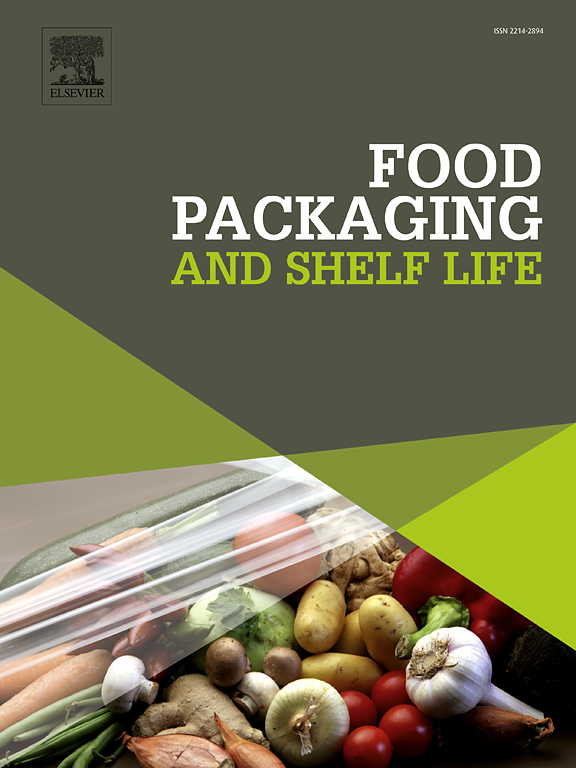水果和蔬菜保存与包装方面的研究进展:从传统方法到创新技术
IF 8.5
1区 农林科学
Q1 FOOD SCIENCE & TECHNOLOGY
引用次数: 0
摘要
背景水果和蔬菜极易因生理变化、酶促反应和微生物生长而导致质量下降和变质。在整个供应链中确保水果和蔬菜的新鲜度和营养价值至关重要,但也极具挑战性。 本综述广泛概述了新鲜水果和蔬菜保鲜和包装方面的研究进展。它强调了传统包装方法的局限性,并强调了对更具可持续性的替代品的需求。本综述探讨了各种现代包装技术,如可食用薄膜、抗菌剂涂层、改良气调包装以及活性和智能包装,以了解这些技术在提高产品质量、减少食品浪费以及采用可再生和可生物降解包装材料方面的潜力。智能包装旨在传达产品质量和环境信息,是未来果蔬包装的一种有前途的方法。文中讨论了各种传统包装材料,包括木材、瓦楞纸板、竹子、黄麻、聚乙烯、高密度聚乙烯、聚丙烯和纸张,以及不同的包装方法,如软包装、模塑纸浆包装、硬包装、冰包装、蛤壳包装和纸板包装。这篇综述对食品保鲜和包装材料的应用和发展具有实际指导意义。本文章由计算机程序翻译,如有差异,请以英文原文为准。
Research progress in the preservation and packaging of fruits and vegetables: From traditional methods to innovative technologies
Background
Fruits and vegetables are highly vulnerable to quality deterioration and spoilage due to physiological changes, enzymatic reactions, and microbial growth. Ensuring their freshness and nutritional value throughout the supply chain is crucial but challenging.
Scope and Approach
This review provides an extensive overview of research progress in the preservation and packaging of fresh fruits and vegetables. It highlights the limitations of traditional packaging methods and emphasizes the need for more sustainable alternatives. Various modern packaging technologies, such as edible films, antimicrobial agent coatings, modified atmospheric packaging, and active and intelligent packaging, are explored for their potential to improve produce quality, reduce food waste, and introduce renewable and biodegradable packaging materials. The smart packaging, aiming to communicate both product quality and environmental context, is introduced as a promising approach for the future of fruit and vegetable packaging.
Key Findings and Conclusions
The review underscores the crucial role of packaging in the global food supply chain and its potential to significantly reduce food waste. Various traditional packaging materials, including wood, corrugated fiberboard, bamboo, jute, polyethylene, high-density polyethylene, polypropylene, and paper, are discussed, alongside different packaging methods like flexible packaging, molded pulp packaging, rigid packaging, ice packaging, clamshell packaging, and cardboard packaging. This review has practical guidance for the application and development of food preservation and packaging materials.
求助全文
通过发布文献求助,成功后即可免费获取论文全文。
去求助
来源期刊

Food Packaging and Shelf Life
Agricultural and Biological Sciences-Food Science
CiteScore
14.00
自引率
8.80%
发文量
214
审稿时长
70 days
期刊介绍:
Food packaging is crucial for preserving food integrity throughout the distribution chain. It safeguards against contamination by physical, chemical, and biological agents, ensuring the safety and quality of processed foods. The evolution of novel food packaging, including modified atmosphere and active packaging, has extended shelf life, enhancing convenience for consumers. Shelf life, the duration a perishable item remains suitable for sale, use, or consumption, is intricately linked with food packaging, emphasizing its role in maintaining product quality and safety.
 求助内容:
求助内容: 应助结果提醒方式:
应助结果提醒方式:


